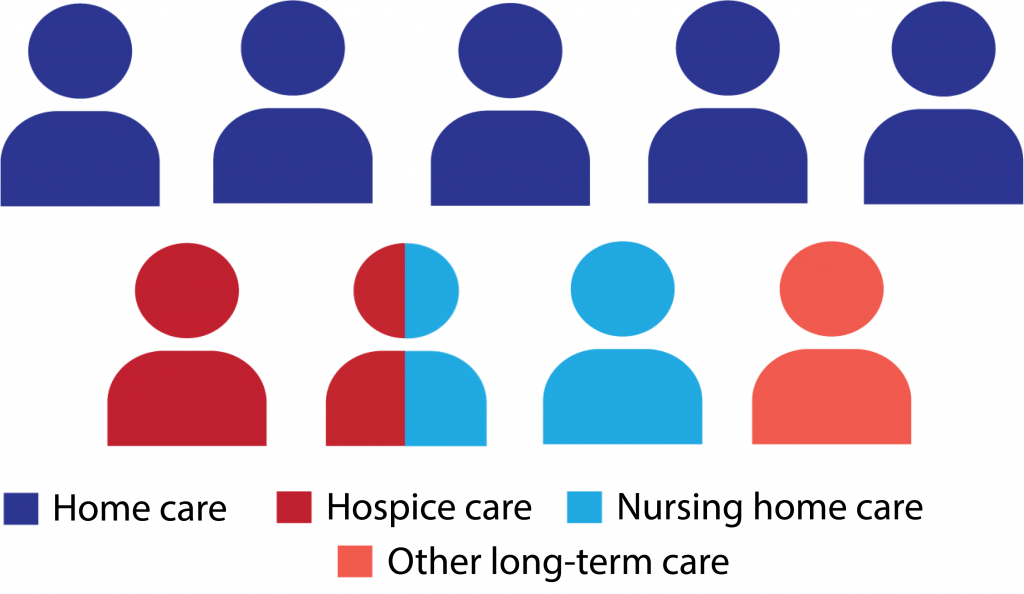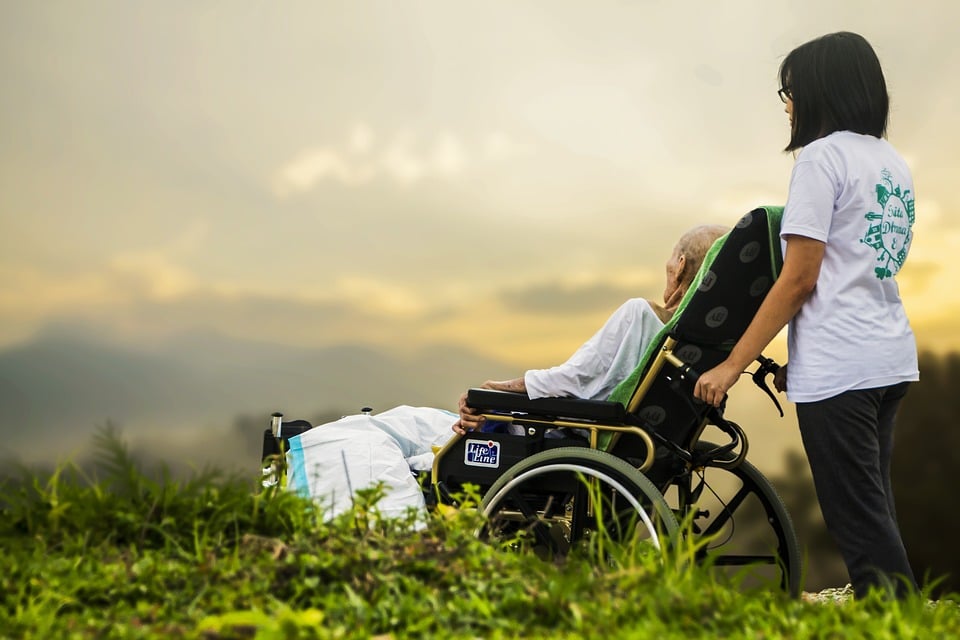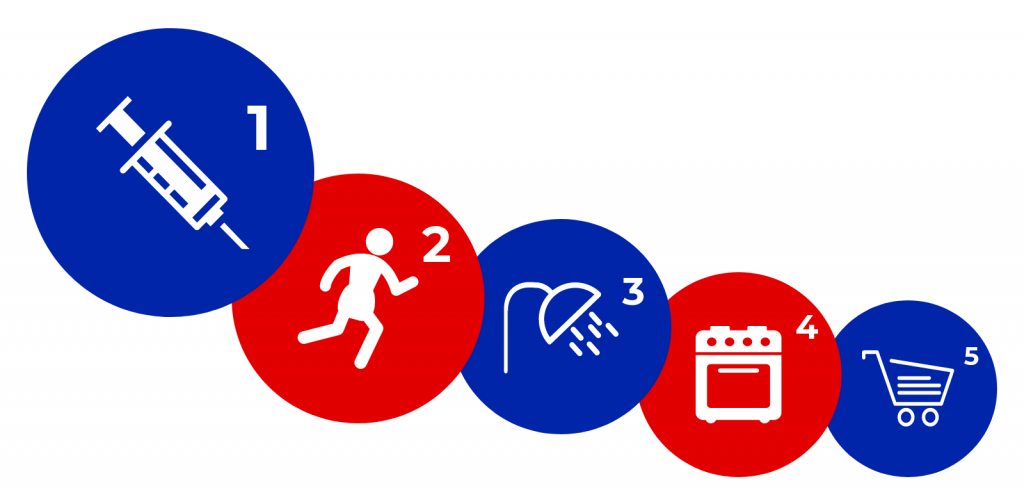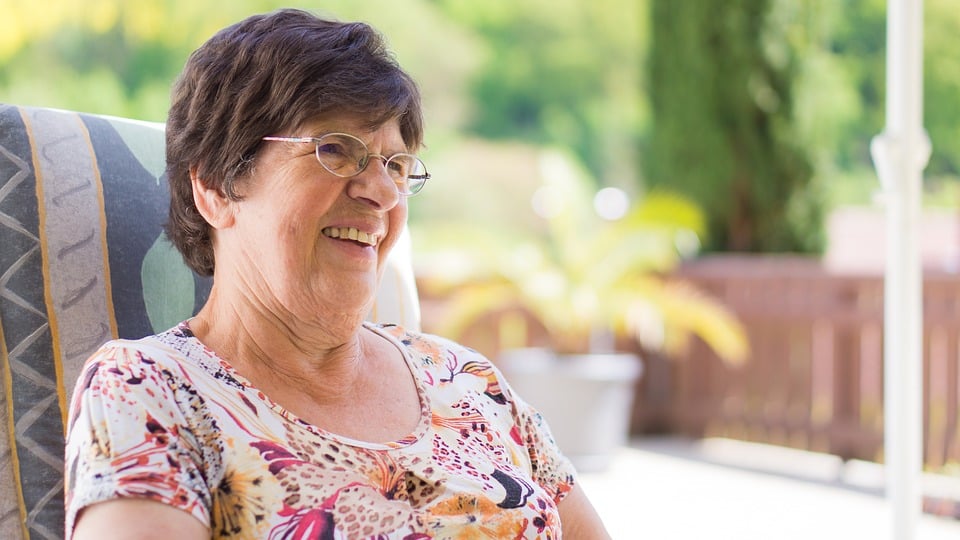6 Things You May Not Know About Home Care
The 30th of November marks the end of Home Care & Hospice Month. Despite two-thirds of people relying on home care at some point in life, many of the details around the practicality of home care are relatively unknown. Here are 6 things you may not know about home care and the heroic nurses, aides and caregivers who look after those who need it.
1. Home Care makes up over half the people receiving support from long-term care services
In 2014, approximately 5 million people received home care services in the US, out of 9 million totally long-term care service customers.
2. Home Care is not just for the elderly
While the majority of home care patients are aged 65 and over, 37% of patients are aged under 65. Younger adults may depend on home care if they have lost capacity for total self-care due of a chronic illness or disability.
3. Home caregiving is one the highest growing jobs
1.5 million Americans were employed in home care and hospice sectors in 2014. By 2030, this number could grow by up to 70%, due to the ageing population and increases in life expectancy. In Australia it is projected that 1 in 5 people will be aged over 65 by 2050.
4. Home care services vary greatly- ranging from monitoring medication to shopping and dietary counselling
According to a 2014 report by The Centers for Disease Control and Prevention (CDC), the five most popular home healthcare services for patients 65 and over are: skilled nursing (84%), physical therapy (40%), assistance with activities of daily living (37%), homemaker services (17%), and occupational therapy (14%).
5. Home caregivers look out for signs of depression in their patients.
Depression is a prevalent hardship for those aged over 65. Depression was diagnosed in about one-fifth of hospice patients, and up to almost one-half of nursing home residents in 2014. Most home care agencies provide counselling services for their patients suffering from depression.
6. Home care actually increases independence for elderly people.
Nearly 90% of seniors wish to stay in their own home rather than an aged care facility as they age, even in they require day-to-day assistance. Home care services assist in maintaining an individual’s independence whilst still receiving the required medical and day-to-day care.
Innovations such as Personal emergency response systems (beepers that can be activated in case of falls) and stove sensors have also increased independence for those who wish to remain in their home. For patients using glass ampoules to store medication, the Qlicksmart SnapIT ampoule opener helps make opening glass ampoule easy and safe, and has been recommended by many in the medical industry.








Im interested to work as care giver and willing to learn more about age care i have certificate care giving provide from icon Medical Group.thank you .
I’m interested to work as caregiver I love to take care the elderly
Im interested for the position to take good care of elderly.im a caregiving NC11 holder. And a Bs Psychology Graduate..and undergradate in Bs Nursing.Im a formerly Oversease worker.im here in the philippines.
I am interisted for that job .im a caregiver here in philippines for 20yrs..i hope give me a chance to work and serve other people.im sincere and didicated performing my jod .and im honest and good character.
Thank you
Helen d.valdez
Hi im interested in this job practical nursing i have experience in hospital as a nursing assistant. And im willing to Learn more.
Im interested caregiver but im here in Philippines i am 34 y
I’m willing to apply as caregiver in the US.
Kindly send me further details
Thank you
Pls send me details on how to apply. Thank you
I’m interested, please send how to apply… Thanks
Interested
Willing and interested to work here.
Willing to work as a Personal Support Worker.
Willing to work as a Elderly Home caregiver
I’m very interested to work from home of the elderly
I want to be part of people that gives there abilities to help others. I’m a Propesyonal Caregiver for the needing of companion and a hand full of care to give. willing to serve my time for others in need. I’m also a father and husband i have a family to take care of. by helping others i help my family grow, and live a better life, so i love my work and give my all for my employer and for my family. willing to work any time.
I am willing to apply caregiver 🙏🙏🙏🙏
I wiling to apply caretaker USA..pls .help me how to apply step by step .thank you
im interested to apply
Am interested
interested I’m a Professional Care Giver and A Nursing aid
Hello I have experience to care elderly.and I’m interested ..thanks
Hello I’m interested..I have experience to care elderly ..thank you
I’m interested to apply.. Nursing aide graduate work as a care giver.. Willing to care elderly. I have a lot of experience in the field of caring elderly people I’m hard working people.. And you can trust me
Am interested in doing that job. And I have experience in taking care of elderly people and even babies.
Am interested in doing that job. And I have experience in taking care of elderly people for almost 3 years .im a nursing assistant graduate and i undergo trainings and seminars in hospital to home care.
May i ask if you have an Age Limit for Work?
I’m a Registered Nurse. Worked in Nursery, Normal NB, Special Care Baby Unit / N-ICU. Currently in Manila. MOST OF MY NURSING EXPERIENCE WERE AS “NURSING EDUCATION & TRAINING COOR./ IN-SERVICE PROGRAMS”
I HAD EXPERIENCE TOO IN A PRIMARY HEALTH CARE FACILITY, ON MATERNA CHILD HEALTH.
I AM AWARE ABOUT BFHI/IFHI/ARI/CDD/PEM EPI & COLD CHAIN SYSTEM (TO BE SPECIFIC).
hello…admin i have my inrereer ro help orher’s in need of care services…can i apply to your good office ..to be able to do the jobin home care for an elderly ..
glad to recieve your reply soon
thank u
Interested to work in a home care facility.Im a registered nurse in the Philippines presently works as public health nurse and at same time school nurse.Very much willing to work for getiatric patients.how to apply?
Hi I’m willing to work as an elderly caregiver I don’t have any working job related to caregiver but I may say that I’ve had a lot of experience taking care of elders specially my grandparents and even taking care of baby … But still I’m willing to explore and share my fashion which is who ever ask for help even u dont know them if in the situation that she really need u’re help dont hesitate.to give them help …for helping others is showing ure love and care to them no matter who they are…
I’m interviewing, but I’m only a Housewife but willing to learned more.
Im interested how to apply
I am Interested. How to apply.
I am from the Philippines. I am interested. Pls send me details on how to apply.
I am interested. Please send the details.
Hi My name is Mark Lester Aquino, From Philippines I am interested to apply as Caregiver and I already have an NC2 Caregiver. I hope you will notice my messages thank you so much.
I’m Jeffrey from Philippines.. I’m interested to work as a care giver but don’t have any experience . I’m willing to learn and understand. . I’m a skilled worker . I love to take care elderly people. I have a grandmother I take care everyday. Hopefully to grant me to work with your company. I appreciate and thank you
I’m interested and willing to work as a Caregiver even without an experience to take care of the Elderly, I’m from the Philippines.
I have no practical experience in any home care services. But I do take care of my sick and elderly parents. As well as my relatives and some close friends’ parents. After my parent had passed away, I still recall how they told me lots of their stories, what they were facing as they got older that nobody wanted to listen to. I hope that this knowledge and the attributes God has given have will help the elderly or even the young ones who need care. And I am still willing to learn too.
Willing to work I do have experience took care of two priest in our foundation and have basic knowledge for therapy and willing to learn more..thank you and have a blessed day
I have very much interested and Patience person to work as a caregiver in elderly.I am easy going to be with .easy learner and easily adopt for the new changes .
Hoping for your highly attention about my application.
Thank you so much!
Im interested to apply as caregiver a have an experience to taking a grandfather and grandmother in nursinghome im very happy to applied my knowledge and abilities for the love and care to them.how to apply to your çompany and thank you so much.
Hello ma’am & sir I’m willing to apply as caregiver within experienced in abroad.and I love care grandparents thank you🙏🙏🙏
Hi! I’m willing to work as home care assistant. I’d love and I’m happy to serve people especially those who need love, care and empathy.
I’m willing to work abroad as care giver but I don’t have licence & undergrad at college.
so much interested.how to aoply.
I’m a underboard nurding graduate. Worked as nurse assistant in a private hospital before and during covid pandemic in ICU unit and medical ward unit at same time being private caregiver to thise patients discharged from the hospital.
Im a caregiver fully finished the 6 month training and also have an experience for elderly care and also for household. Where to send my resume and how to apply please send me the details to my email lloydbdiaz1980@gmail.com. thank you
I am interested on taking care of the elders..I have an experience since I was 15years old being with elderlies. May mom is a Nursing assistant before. She work at a facilities that takes care of elderlies and I always come with her to help as one of my community service.I am also a Nursing assistant. I was trained for a month.
I really love taking care of our grandparents
I’m heartily interested to taking care of elderly since it is my passion. Im willing to do my best service to this field with all my heart.
Me pls
im interested about taking care elderly, is a vacancy offer for care giver
I love elderly so much
I have experience in care giving and willing to care someone